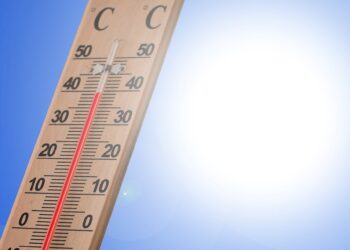The UAE is taking steps to establish an early warning system for sand and dust storms (SDS) to protect residents with respiratory conditions and address the recent increase in respiratory diseases. Dr. Nada Al Marzouqi, Director of the Department of Public Health and Prevention at the Ministry of Health and Prevention, shared in an interview during COP28 at Expo City Dubai that the SDS warning system aligns with the country’s climate adaptation program. Dr. Al Marzouqi emphasized the impact-based SDS warning’s role in enabling individuals with pulmonary and cardiovascular diseases to promptly take preventive action upon receiving a warning.

Despite having one of the region’s lowest rates of respiratory diseases due to a robust medical system, the UAE has observed a recent spike in cases. To address this, Dr. Al Marzouqi highlighted collaborative efforts with health partners, the National Centre of Meteorology (NCM), and the National Emergency Crisis and Disaster Management Authority to implement an SDS early warning system in the near future. Exposure to dust can trigger acute attacks for those with asthma and worsen the condition of individuals with chronic obstructive pulmonary and cardiovascular diseases. The SDS early warning system aims to provide a crucial heads-up, enabling individuals to take preventive measures or prophylaxis.
Recognizing sand and dust storms as international concerns, Dr. Al Marzouqi emphasized the link between health and climate change. Rising global temperatures have led to frequent heatwaves, wildfires, floods, tropical storms, and hurricanes, significantly impacting the health and well-being of communities worldwide. Dr. Al Marzouqi stressed that health is the human face of climate change, asserting that discussions on climate change must prioritize health.
Acknowledging the importance of addressing these issues, Dr. Al Marzouqi praised the COP28 Presidency and the World Health Organization for the ‘COP28 UAE Declaration on Climate and Health.’ Signed by 123 countries on December 2, this declaration aims to build more climate-resilient health systems, enhance collaboration, reduce carbon emissions, and increase finance for climate and health solutions. Dr. Al Marzouqi expressed optimism that the world is on the right track to tackle climate change and develop a climate-resilient, sustainable, and equitable health system.

















